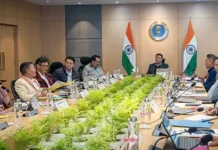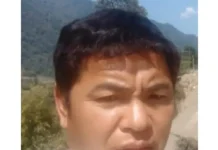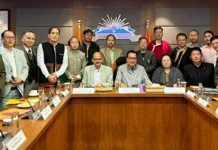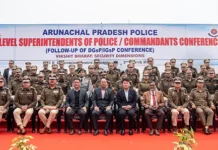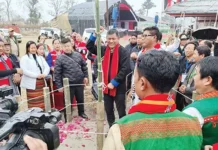ITANAGAR, Nov 3: Survival International is calling for greater recognition from world leaders for tribal peoples’ crucial role in protecting the environment, ahead of the COP 23 conference in Bonn, Germany.
The conference, which takes place between November 6 and November 17, is a follow up to the groundbreaking Paris climate talks in 2015, and brings together government representatives and activists from around the world, including some indigenous people, to discuss environmental issues.
Survival has been leading the global call for a conservation model that respects tribal peoples’ rights. This has been increasingly acknowledged by key international figures, including the United Nations Special Rapporteur for Indigenous Peoples, Victoria Tauli-Corpuz.
Davi Kopenawa, a Yanomami shaman known as the Dalai Lama of the rainforest, said: “The rains come late. The sun behaves in a strange way. The world is ill. The lungs of the sky are polluted. We know it is happening. You cannot go on destroying nature.”
Evidence proves that tribal territories are the best barrier to deforestation. Robust land protection measures and recognition of tribal land rights protect vast areas of forest, aiding biodiversity and reducing global CO2 levels.
But despite this, some of the big conservation organizations are partnering with industry and tourism and destroying the environment’s best allies. The World Wildlife Fund (WWF) and the Wildlife Conservation Society (WCS) have both partnered with logging companies in the Congo Basin, none of which is logging at sustainable rates, and both have contributed to gross violations of the rights of tribal peoples like the Baka and Bayaka.
Although some indigenous activists like Sonia Guajajara from Brazil will be present at the talks, tribal peoples’ voices will not be at the center of the conference. This is despite the fact that tribal peoples are the best conservationists and guardians of the natural world, and should be at the forefront of the environmental movement.
Survival’s Director Stephen Corry said, “It’s dangerous to sideline tribal people in discussions on how best to protect our planet. They have far greater insight into how to look after the environment than anyone and we ignore their knowledge at our peril. For decades, industrialized society has ravaged the planet and destroyed indigenous peoples along the way. It’s time we started listening to them before it’s too late.”

